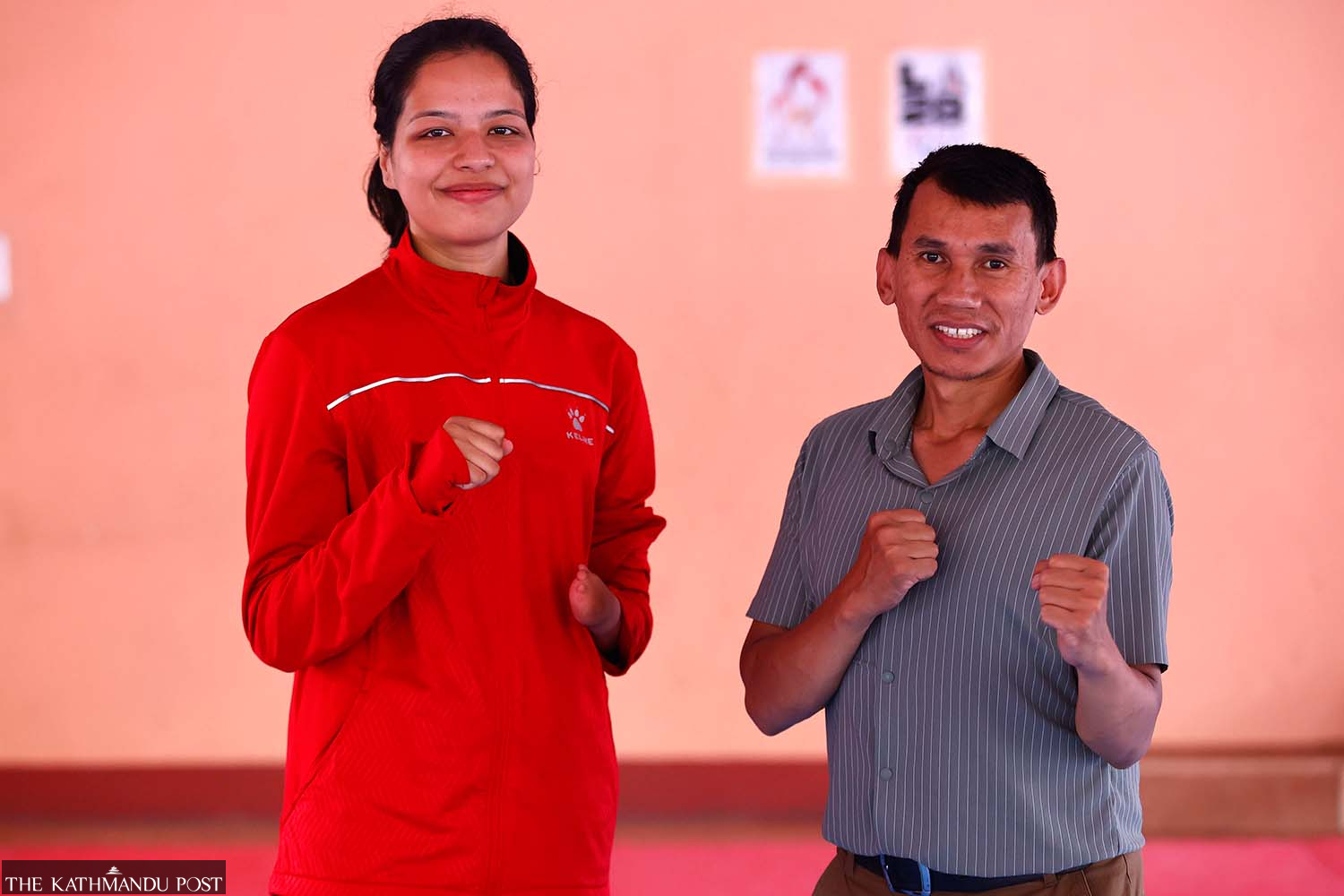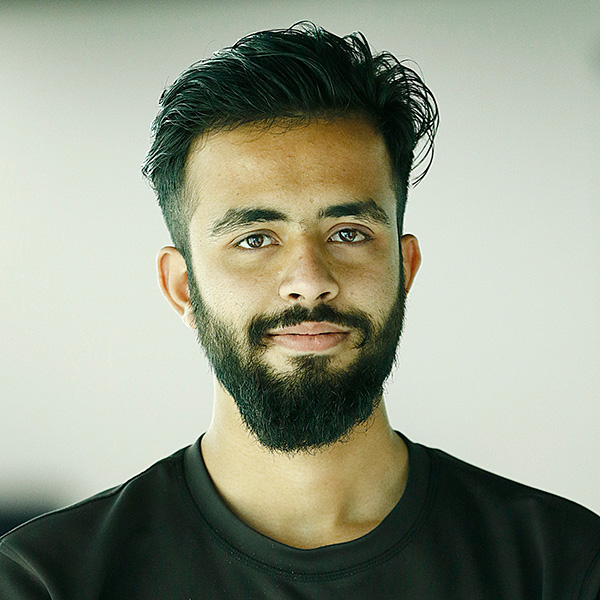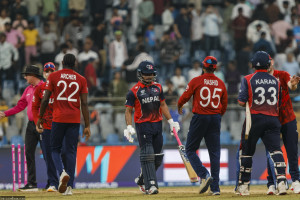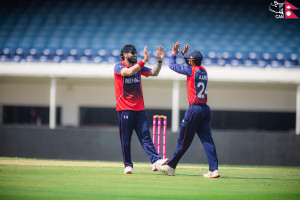Sports
Palesha Goverdhan isn’t done making history
She trains, she studies, she sacrifices, and she smiles through it all. Nepal’s first Paralympic medallist sets her sights on a bigger prize at LA 2028.
Nayak Paudel
Except for when Palesha Goverdhan is sparring or training, she always wears a smile. “What is there not to be happy about?” she says, after finishing her day’s training inside the Nepal Taekwondo Association building in Satdobato, Lalitpur, a place where she has spent much of her young life.
At just 22, when most people would be thinking of what to do with their lives, Goverdhan has already occupied a place in history.
Her name is the answer to the question: Who won Nepal’s first Olympic or Paralympic medal?
In less than a week, it will be one year since Goverdhan etched her name into history with a bronze medal at the 2024 Paris Paralympics. She still vividly recalls the moment of circling the arena of Paris’ iconic Grand Palais on August 30, wrapping herself with the national flag, alongside her mentor and coach Kabiraj Negi Lama, after defeating Serbia’s Marija Micev 15-8 for the bronze medal at the women’s K44 -57kg weight class of Para taekwondo.
“What a day it was,” Goverdhan recalls. The triumph carried even more weight because three years earlier, at the delayed 2020 Tokyo Paralympics, she was agonisingly short of victory—losing 9-12 to China’s Yujie Li—in the bronze medal bout. “That loss in Tokyo hurt my pride as I knew I should have won. It pushed me forward, and Paris became the reward.”
The path to Paris, however, had almost ended before Tokyo. Goverdhan admits she was on the verge of quitting taekwondo altogether. “It was my mother who did not allow me to quit. She scolded me, saying that leaving then would be like building a temple but never placing the steeple. I could not let down the woman who taught me never to give up, no matter my disability.”
Her mother’s faith proved right. And when Goverdhan finally clinched Nepal’s biggest-ever sporting medal, no one was prouder than the woman who had stopped her from giving up.
Getting featured in an article by the International Paralympic Committee (IPC) in January this year was a ‘wild rollercoaster’ moment, she shares. And so was returning home to a warm reception, getting fans and followers, and people recognising her in the street.
She now feels happier when she sees individuals with disabilities gaining confidence following her achievements. “Soni Thapa, who does not have her left hand, joined us recently. She said that she stayed within her house for around two decades, feeling insecure,” Goverdhan told the Post. “But she has now come forward after coming across my story. She believes in herself and has decided not to turn back. Her words are now motivating me to go ahead stronger.”
According to her, confidence in people with disabilities comes from their homes. “If your family is not supporting you, who will?” she says. “What if my father and mother did not teach me to rebel against those who look down on me? What if I did not kick and punch back? I would not have been here. But I do not want everyone to have to fight with a heavy heart to be recognised.”
Goverdhan, who has been living in China for higher studies, came back home after winning a bronze medal at the 10th Asian Para Taekwondo Championships on August 1 in Kuching, Malaysia. She reached Malaysia directly from China and joined four para taekwondoins—Bharat Singh Mahata, Amir Bhlon, Kamana Prasai and Renu Tamang—led by coach Lama, and was the only one who returned to Nepal with a medal.
When she touched down at the Tribhuvan International Airport, she called her mother and asked her to make mo:mo. “I really like to eat delicious things and especially those cooked by my mother,” Goverdhan said. “I train harder to digest delicious food and keep up with my weight. It is not easy to be a glutton.”
Alongside food, she also loves studying. Goverdhan says she lives two lives: one as a student, the other as an athlete.
“In China, my day starts at the gym, then I rush to the university for classes. After the lunch break, I head straight to weight training to keep my category in check, before slipping back into class still in my gym clothes,” she said. “In the evening, I cycle 20 minutes to reach the dojo, which I found after many struggles. By the time I return to my room, it’s already 9pm, and that’s when I finally sit down for my assignments.”
She is returning to China in mid-September after her vacation ends. Her third-year classes would begin then. “I don't want to leave my mother’s cooking, but I can't compromise with my study,” she said.

Whenever she has trouble with her academics due to her athletic life, she feels low.
“I get sad when my grades are below the best,” said Goverdhan. With a cheeky smile, she continues, “I have been a bright student since childhood, despite my rebellious nature. I have compromised a lot with my studies for taekwondo. I even missed my first year’s exams due to the Paris Paralympics.”
Goverdhan recently took her first-year examination alongside that of the second year and passed both with good grades. “As soon as I completed my physics exam, the last exam of my second year, I rushed to the airport as I was heading to South Korea for a training camp with only a few hours remaining for the flight,” Goverdhan said.
She was one of the 34 para taekwondoins from 17 countries, gathered in Muju, Korea, for the first-ever World Taekwondo Para Taekwondo Training Camp in July.
“The camp shed light on how far other countries are in terms of taekwondo-related training and resources,” said Goverdhan. “But when I interacted with other participants from developed countries, I was sad to find that people with disabilities suffered discrimination even there.”
It was also because of the way she was treated in Nepal that Goverdhan decided to go to China for her higher studies. A student of architecture, Goverdhan, who is in her bachelor’s third year, recalls how a Nepali college questioned her art. “When they looked at my drawing and then me and said, ‘Did you really make it?’, I decided not to study here,” Goverdhan said. “In China, I have not been looked down on due to my disability. I was treated as a normal human being. And I am doing well there.”
Goverdhan has many instances to share regarding Nepalis’ response to her hand. “I even laugh it out when people tell different stories regarding my hand,” Goverdhan laughs out even before sharing them. “People ask, but before I even speak, they venture to give their opinion. The most comedic one of such instances is the question if I got electrocuted,” she ends the context with a loud laugh.
‘Picture abhi banki hai’
During the function in September last year, where Prime Minister KP Sharma Oli honoured Goverdhan and Lama with Rs6.5 million and Rs585,000, respectively, Minister for Youth and Sports Teju Lal Chaudhary had pledged the ministry’s support for Goverdhan’s higher education and her participation in the upcoming Asian Games. Yet, she has received none of that pledge. Neither has her coach, Lama, who has been volunteering for years, been given the promised job as a coach.
But the duo has been continuing their para taekwondo journey and taking Nepal’s name to greater heights despite giving up a lot of their other dreams.
“I am glad that Negi guru is with me,” Goverdhan said. “He has been a huge support. We have been to several tournaments together and we have a lot of good and funny memories.”
Returning to seriousness, a mood she keeps for training and sparring, Goverdhan said, “My life is yet to reach its peak. I am not going to get slow until then, even if I lack support from those concerned. I remember a dialogue of Shah Rukh Khan from the Bollywood film ‘Om Shanti Om’ where he says ‘Picture abhi banki hai mere dost [The film isn’t over yet my friend]’.”
“The peak,” as per Goverdhan, who, in August, climbed by a position to eighth in the world ranking in K44 -57kg category, “will be a bigger medal at the LA Olympics in 2028. There, I will at least win a medal bigger than Paris’ bronze. I will train hard for it because I think I will not continue after it, but I will still be a part of para taekwondo in some other roles. I want to work as an architect after that because I am good at it. I want my story to have a happy ending.”
And Lama also wants to see Goverdhan end her taekwondo journey on a high note. “She has given a lot to this sport,” Lama told the Post. “Her hard work will be rewarded in a better way, and the LA Paralympics will be that platform.”




 20.12°C Kathmandu
20.12°C Kathmandu















